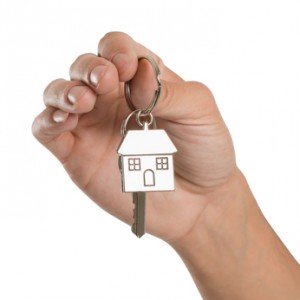When Moving for a Job Means Becoming an Accidental Landlord

Of course, it’s not always easy to go where the jobs are. In fact, you may end up with a second job you might not have planned on—being a landlord. Like a number of people, you may be thinking of making a temporary move, just until you can find work back home. That means you will probably want to rent out your house versus selling it while you are away.
Becoming a Landlord
As long as you do your homework, cover all your bases, and don’t mind a little elbow grease and spending a few evenings in front of your computer, becoming an accidental landlord is not that difficult. Plus, it could mean additional income in your wallet if the cost of housing is cheaper in the place where you will be relocating.
The following are a few things you should do in your new position as landlord:
- Do market research. Check out the rental listings in your area and be careful not to compare apples to oranges. In other words, if you have a three-bedroom home, you probably won’t be able to get the same amount of rent as a landlord renting out a three-bedroom with a loft. So dig deep into listings so that you know exactly how much rent to ask for your property.
- Allow some concessions. If your home is not renting as quickly as you had hoped, consider renting to owners of small pets. According to the American Pet Products Association, Americans own approximately 83.3 million dogs and 95.6 million cats. So if you don’t allow pets, you could be significantly cutting the market for your rental. In addition, MSN Real Estate reports that you can typically charge approximately 20 to 30 percent more for your rental home if you allow pets. Remember also to ask for a security and cleaning deposit, and specify the number and the size of pets you will allow in your house.
- Know your options. When you are an out-of-state landlord, you will need to rely on a number of reputable contractors for those times when things go wrong at your home. You may want to consider joining the American Apartment Owners Association, which offers a list of reliable service people on its website among its many services. This resource could greatly help you in your search for contractors.
- Put everything in legal contracts and in writing. At the very least, you should include the dollar amount of your fees and deposits, the monthly rent amount, terms of the agreement and the name of your tenants in your contract. Never rely on verbal agreements, especially when it comes to family members. You can get preprinted rental agreements from office supply stores and also online.






